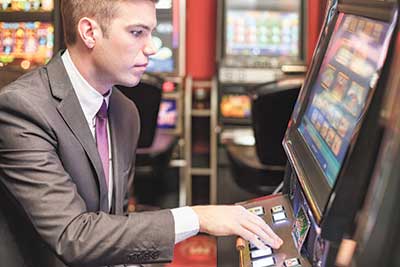Councils are looking to have a greater say in where electronic gaming machines (EGM) are placed in their communities, with recent research suggesting that the tests used to determine licenses approved are poorly defined.
The report, ‘Review of Decisions of the Victorian Commission for Gambling & Liquor Regulation: Electronic Gambling Machine Applications’ was commissioned by the Municipal Association of Victoria (MAV) and conducted by the Monash University School of Public Health and Preventive Medicine.
The research looked at the themes consistently cited by the Victorian Commission for Gambling & Liquor Regulation for the 142 EGM license applications considered between July 1 2007 and June 30 2014.
One hundred and thirty two applications were approved, ten were refused, and 17 were granted with conditions imposed.
The report found that the Victorian Commission for Gambling & Liquor Regulation overwhelmingly takes the view that easily measurable financial or economic benefits outweigh the less clear socially detrimental effects.
The report also found that there were 16 themes that were frequently cited by The Commission that supported EGM license applications, most relating to the economic benefits poker machines bring.
These include commitments from applicants that revenue from poker machine increases will be turned into employment opportunities, capital works will be undertaken and that contributions will be made to community organisations.
Themes that opposed EGM gaming licenses instead focused on social factors including the level of disadvantage, and evidence of problem gambling in the community and current EGM density.
The report stated: “In our opinion this arises from the Commission’s tendency to see the economic or financial factors as more readily identifiable than detrimental but often poorly quantified social factors, particularly social detriment and disadvantage.
“Further, the lack of a nuanced consideration of the nature of problem gambling and the distribution of its harms results, in our view, in a somewhat simplistic appreciation of the extent to which increased gambling opportunities translate into community harms.”
A second report also found that reducing maximum bets to one dollar would have a positive effect for problem gamblers, and that local governments are in a good position to assess the limits of poker machine accessibility.
The research was commissioned by the MAV to build on last year’s Enough Pokies campaign.
Enough Pokies is a partnership of 38 local councils, the Salvation Army and the Inter-Church Taskkforce on Gambling that is seeking better protection for vulnerable communities from inappropriate placement of poker machines.
Campaign spokesperson and the then City of Monash Mayor, Councilor Geoff Lake last year said that the campaign was in response to the way big gaming operators are increasingly targeting Victoria’s most vulnerable communities.
“In recent years the big operators have been attempting to grow their gaming revenues by moving more of their machines into the most vulnerable and disadvantaged communities in the state.
“They have been assisted by a woefully inadequate legal framework which is increasingly resulting in bizarre logic being employed to approve almost all applications which are submitted.”
In March, the Tasmanian Department of Treasury and Finance released Volume 1 and 2 of its third impact study into the Social and Economic impact of gambling in Tasmania, with feedback sought from participating councils on the community level costs of gambling.
Council representatives in the report said they were concerned that residents had limited access to licensed venues that did not have gaming facilities.
While the report did not support this claim, in the examined Local Government Areas, gaming venues represented 26 percent of licensed venues in the low socio-economic status local government areas, and 17 percent in the comparison local government areas.
Nillumbik Shire Council in Victoria is currently asking the community for their say on poker machines across the Shire in order to develop a policy on gambling.
A full ‘Discussion Paper’ has been drafted and was presented to Councillors at the Policy and Services Committee meeting earlier this year.
Nillumbik Shire Mayor Councillor Helen Coleman said Council welcomes the community consultation on this issue.
“We will be taking a public health approach which looks at the impacts of gambling on the whole community and what can be done to prevent harm.
“There are 80 machines in total, with 40 at the Eltham Hotel and another 40 at the Diamond Creek Tavern.
“Local communities and Councils have little influence over the granting of gaming licences.
“The majority of applications that Councils and communities oppose are because of negative social and economic impacts; but they are often later approved by the gambling regulator or VCAT.”
Geelong Council also encouraged residents to give gambling the flick last March by taking part in the March Away From Gambling campaign.
Councillor Jan Farrell, who Chairs the Geelong Gambling Advisory Committee, urged people to take part in the event.
“Gambling not only affects people’s hip pockets, it can also affect their work and family life.
“On average more than $9 million is lost per month at pokie venues in Greater Geelong.
“The effects of gambling, particularly using the pokies, can be devastating and people can potentially lose a significant part of their income.”

















